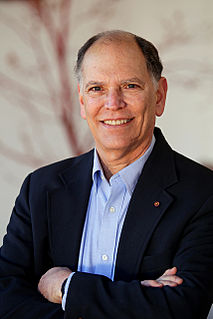A Quote by Jerry Sabloff
A terrific, stimulating book...Ramalingam clearly and engagingly shows how the use of complex adaptive systems thinking can significantly strengthen and enhance the impacts and effectiveness of global foreign aid.
Related Quotes
As we build systems that are more and more complex, we make more and more subtle but very high-impact mistakes. As we use computers for more things and as we build more complex systems, this problem of unreliability and insecurity is actually getting worse, with no real sign of abating anytime soon.
One can expect the human race to continue attempting systems just within or just beyond our reach; and software systems are perhaps the most intricate and complex of man's handiworks. The management of this complex craft will demand our best use of new languages and systems, our best adaptation of proven engineering management methods, liberal doses of common sense, and a God-given humility to recognize our fallibility and limitations.

































